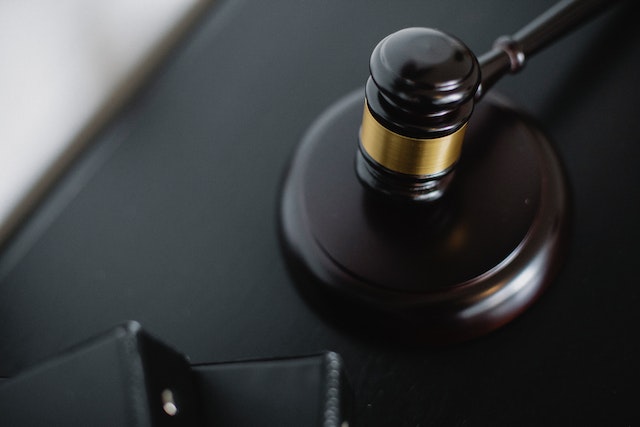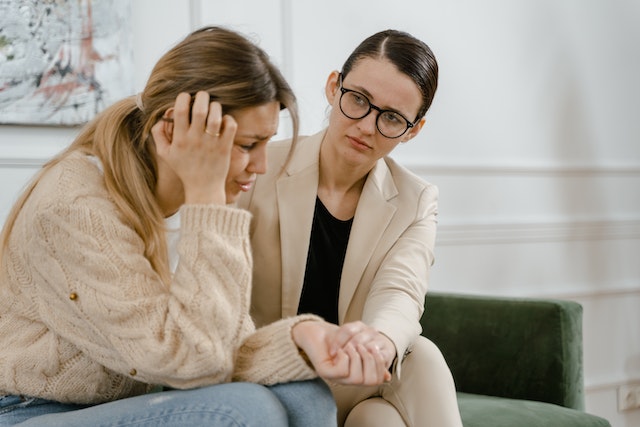
Can the Victim Talk to the Prosecutor | Everything You Need to Know
The contents of this web page are for informational and educational purposes only, and nothing you read is intended to be legal advice. Please review our disclaimer before taking action based upon anything you read or see.
Can the victim talk to the prosecutor? This post will aid you greatly if you are among those who usually ask this question.
Victims of crimes generally have the right to communicate with prosecutors about their cases. However, the specific rules and procedures regarding communication between victims and prosecutors can vary depending on the jurisdiction and the type of case.
In some cases, victims may have the opportunity to meet with the prosecutor to discuss the case, provide information or evidence, and express their opinions or concerns. In other cases, victims may be able to communicate with the prosecutor through written statements or letters.
However, it’s important to note that prosecutors must act in the best interests of justice, which may not always align with the desires or requests of the victim. Prosecutors are responsible for making decisions based on the facts of the case and the applicable law and may be unable to satisfy all of the victim’s requests or concerns.
Suppose you are a victim of a crime and want to communicate with the prosecutor handling your case. In that case, you may want to contact a victim advocate or a legal professional to understand your jurisdiction’s rights and procedures.
Role of the Prosecutor in a Criminal Case

The prosecutor is an attorney tasked with defending the state in legal proceedings. The burden of proof rests with the prosecution, who must establish guilt beyond reasonable uncertainty to impose punishment. Following are some of the prosecutor’s crucial responsibilities in criminal cases:
Participate in Investigation:
To obtain, compile, and examine evidence necessary to construct a case during a criminal investigation, prosecutors collaborate with security authorities. They lead the probe, examine and assess the evidence, and determine if sufficient proof exists to indict a person.
Selecting Charges Against a Defendant:
The prosecutor can choose whether a case should be tried and, if so, what charges are appropriate. The prosecutor bases their choice on the credibility of proof and the possible repercussions of a conviction.
Counsel the Police:
To offer legal advice in crime investigations, prosecutors collaborate closely with the police and other law enforcement organizations. They provide the police advice on what details are pertinent to the case and what proof will be admitted in court.
Representing the State in Court:
In criminal cases, prosecutors act as the state’s legal representatives. In front of justices and juries, they debate legal arguments, question witnesses, and put forward evidence.
Right of the Victim to Communicate with the Prosecutor
Victims possess the right to interact with the prosecutor. Some of these are:
- Victims possess a right to know what allegations the prosecutor is filing against the accused;
- They have a right to know any plea deals available to the accused;
- Victims possess a right to know any plea bargain agreements between the attorney and the accused.
- Victims retain the right to be notified of any reparation being provided to the accused as well as any filings that may be pending that might impact the case.
How to Contact the Prosecutor as a Victim
As a victim, getting in touch with the prosecutor will assist in guaranteeing that your case is handled correctly. You should contact the police or the department that dealt with your case first.
You may ask them for the name and contact details of the prosecutor in charge of your case. Having this knowledge is crucial to check in with the attorney and ensure the case is developing properly.
You may contact the prosecutor directly after you have obtained their contact details. You might have to call or write an email. But it’s crucial to be persistent and keep trying to contact them. Numerous prosecutors may need help to contact because of their heavy caseloads. However, they must inform you of the progress of your case.
Types of Victim-Prosecutor Communication
Here are some ways a victim can communicate with a prosecutor:
First Contact
This is often the initial point of contact when a victim calls the prosecutor’s office. The victim will undergo questioning by the prosecution about the offense, including specifics about the perpetrator, the scene, and the time. The prosecution will also question the victim about the damage that the offense caused them.
Continuous Communication
The prosecutor will continue communicating with the victim after the first encounter to inform them of the case’s development. Updates on court dates, plea agreements, and sentence details could be part of this. The victim might feel more in control and less left in the dark with the support of this constant communication.
Victim Effects Statement
A statement about the victim’s impact is usually available by the victim to the prosecution or the court, either in writing or orally. It describes the pain the crime inflicted and how it changed the victim’s life. Statements about the victim’s impact are crucial because they offer the victim a chance to speak out and aid the prosecutor in comprehending the entire scope of the harm.
Limitations on Victim Communication with the Prosecutor

In criminal law, communication between the victim and the prosecutor is crucial to guaranteeing that justice is available. However, victims may encounter restrictions while speaking with prosecutors. Some of these restrictions are as follows:
Restrictive Access
Restrictive access is one of the most significant barriers to communication with prosecutors that victims must overcome. Like numerous other legal professions, prosecutors frequently need more time and money. Consequently, owing to practical considerations, victims’ capacity to speak with prosecutors may be restricted.
Emotional Constraints
It might be difficult for crime victims to successfully speak with prosecutors because they often have to cope with strong emotions like fear and anger. These sentiments may make it difficult for the victim to articulate their ideas and feelings and make them difficult to make their demands or worries known to the prosecution.
Language Prejudice
Communication might be difficult when a victim and the prosecuting attorney speak different languages. The victim can feel overlooked or misunderstood if the prosecution does not completely comprehend the case because they aren’t familiar with the victim’s dialect.
Importance of Victim Communication in a Criminal Case
It is impossible to stress how crucial victim communication is in criminal trials. Crime victims must also be informed of their alternatives and legal rights within the framework of the legal system. Examples of its significance include:
It boosts the victim’s trust in the legal system.
The victim’s increased trust in the legal system is the first benefit of victim dialogue. Victims of crime desire to be heard, recognized, and encouraged. Victims may express their worries, pose questions, and get answers when there is effective communication. Thus, it enables individuals to take charge of the situation and make educated judgments. As a result, when victims are happy with the quality of care they get from the authorities, it boosts their faith in the legal system.
Directs the course of the investigation
The investigation is guided by victim dialogue. Communication between the victim and the investigating authorities might provide vital information to help identify the culprit.
Victims may play a crucial role in the investigation by sharing descriptions of the culprit, details about the crime scene, and contact information for witnesses. As a result, open lines of contact between the victim and officials are essential to the investigation’s effectiveness.
Expands access to assistance services
Access to assistance services is improved via victim engagement. The emotional trauma that follows being a victim may be severe and protracted. Victims need assistance; good communication may open doors to crucial assistance agencies.
Victim After a crime, victims may get support services, including counseling, medical care, or financial assistance. It is simpler for victims to obtain assistance when there are open contact lines between them and the authorities.
My Opinion
A victim can talk to the prosecutor, as highlighted above. Victim communication decreases the possibility of recurrence and further enhances accountability.
Competent victim communication gives victims a way to hold offenders responsible. Victims may communicate their need for redress and their wish to see offenders prosecuted via communication channels.
References
- Crime victims’ rights”. Cornell Law School Legal Information Institute: https://www.law.cornell.edu/uscode/text/18/3771
- Service Prosecuting Authority: https://www.gov.uk/guidance/service-prosecuting-authority
- The Code for Crown Prosecutors | The Crown Prosecution Service: https://www.cps.gov.uk/publication/code-crown-prosecutors
- FCA Prosecution Handbook: https://www.handbook.fca.org.uk/handbook/EG/12.pdf

I’m a driven and accomplished law graduate and post-graduate, passionate about sharing my legal expertise via my blog. I hold a Bachelor’s degree in Law from the University of London (UK) and a Master’s in Law from the University of Derby (UK). Both gave me the foundational knowledge and skills to excel in my chosen career path.
Throughout my academic journey, I have gained extensive knowledge in various fields of Law, including Corporate and Business Law in the USA, Criminal Law, International Law, US Copyright law, and most importantly, American Constitutional law.


Comments are closed.